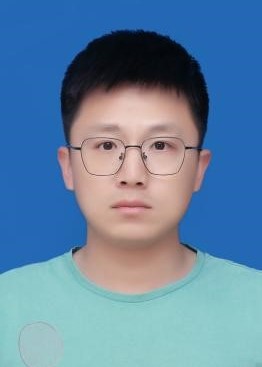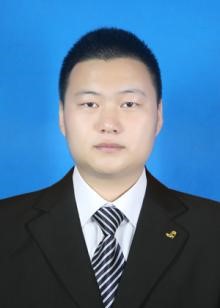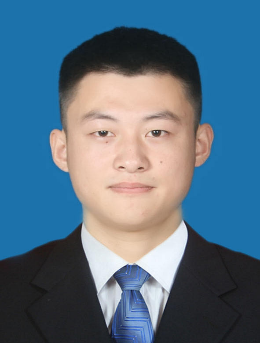Special Session 12
Intelligent Control Technology for Advanced Aircraft 先进飞行器智能控制技术
Introduction:
With the sustained advancement of science and technology, and the accelerated development of the low-altitude economy, the application scenarios of aircraft in national defense, civil transportation, emergency rescue, and other fields have continued to expand, while their flight missions have grown increasingly complex and diverse. Against this backdrop, the reliability and intelligence of aircraft control systems have become critical challenges constraining technological breakthroughs. Due to the inherent strong nonlinearity, multi-variable coupling dynamics of aircraft, as well as the susceptibility to aerodynamic disturbances, model uncertainties, and complex environmental disturbance during flight process, the advanced methods, such as adaptive algorithms, safety control, and intelligent decision-making, has been integrated into aircraft control systems, which has emerged as a key focus for both of academic and industrial research.
This special session, titled 'Intelligent Control Technology for Advanced Aircraft', aims to bring researchers, engineers, and practitioners together to explore emerging developments and future directions in advanced aircraft control methodology. The session will focus on the following key areas:
(1) Composite Anti-Disturbance Control for Advanced Aircraft;
(2) Safety Control under Multi-Constraints for Advanced Aircraft;
(3) Intelligent Decision-Making and Guidance for Advanced Aircraft;
(4) Adaptive Optimization Control for Advanced Aircraft.
随着科学技术的持续发展和低空经济的加速推进,飞行器在国防安全、民用运输、应急救援等领域的应用场景不断拓展,其承担的飞行任务也日趋复杂多样。在此背景下,飞行器控制系统的可靠性与智能化水平已成为制约技术突破的核心问题。由于飞行器普遍具有强非线性、多变量耦合等动态特性,且在飞行过程中易受气动扰动、模型不确定性及复杂环境干扰,如何将自适应算法、安全控制、智能决策等先进方法深度融合至飞行器控制系统,已成为学术界与工业界共同攻关的关键方向。
本次专题会议的主题为“先进飞行器智能控制技术”,旨在召集研究人员、工程师和从业人员,共同探讨飞行器先进控制方法前沿发展和未来方向。会议将集中在以下关键领域:
(1). 先进飞行器复合抗干扰控制;(2). 先进飞行器多约束下的安全控制;(3). 先进飞行器智能决策与制导;(4). 先进飞行器自适应优化控制。
Organizers:
 |
Hui Ye, Jiangsu University of Science and Technology, China Hui Ye received the B.S. degree in flight vehicle propulsion engineering and the Ph.D. degree in control theory and control engineering from Nanjing University of Aeronautics and Astronautics (NUAA), Nanjing, China, in 2007 and 2016 respectively. He is currently an associate professor of the College of Automation, Jiangsu University of Science and Technology (JUST), Zhenjiang, China. His current research interests include advanced control of intelligent unmanned systems and its application to UAVs, USVs and Amphibious Vehicles. In recent years, he has published several high-quality papers in internationally renowned journals such as IEEE/ASME Transactions on Mechatronics, Ocean Engineering, and Mechatronics. |
 |
Yaohua Shen, Jiangsu University of Science and Technology, China Yaohua Shen received his B.S. degree in Electrical Engineering and Automation from the Nanjing Normal University, Jiangsu, China, in 2013, his M.S. degree in Electrical Engineering from the Henan Polytechnic University, Henan, China, in 2019, and his Ph.D. degree in control theory and control engineering from the Nanjing University of Aeronautics and Astronautics (NUAA), Jiangsu, China. He is currently a Lecturer of the College of Automation, Jiangsu University of Science and Technology (JUST), Zhenjiang, China. His current research interests include control of unmanned aerial vehicle. |
|
Fan Liu, Ludong University, China Fan Liu, received his Ph.D. degree in control theory and control engineering from Nanjing University of Aeronautics and Astronautics in 2024. He joined the Ulsan Ship and Ocean College, Ludong University, in 2024. His research interests include anti-disturbance control, robust control, switched control, and turbofan engine control. |
|
Hongzhen Guo, Nanjing Forestry University, China Hongzhen Guo received his Ph.D. degree in control science and engineering from Nanjing University of Aeronautics and Astronautics in 2024. He joined the College of Mechanical and Electronic Engineering, Nanjing Forestry University in 2025. His research interests include anti-disturbance control, robust control, formation, and adaptive control. |
Submission Guideline:
Please submit your manuscript via Online Submission System: https://easychair.org/conferences/?conf=rcae2025
Please choose Special Session: Intelligent Control Technology for Advanced Aircraft
- Home
- Call for Papers
- Call for Special Session
- Special Session 1
- Special Session 2
- Special Session 3
- Special Session 4
- Special Session 5
- Special Session 6
- Special Session 7
- Special Session 8
- Special Session 9
- Special Session 10
- Special Session 11
- Special Session 12
- Special Session 13
- Special Session 14
- Special Session 15
- Special Session 16
- About Conference
- For Attendees
- History
- Contact
- 中文

